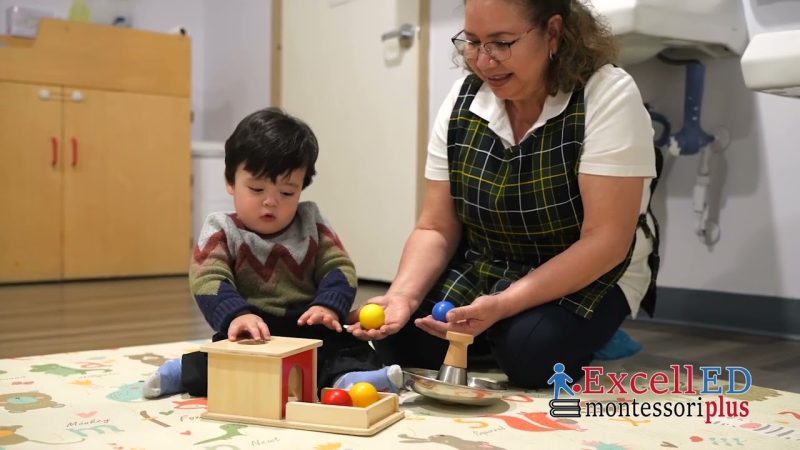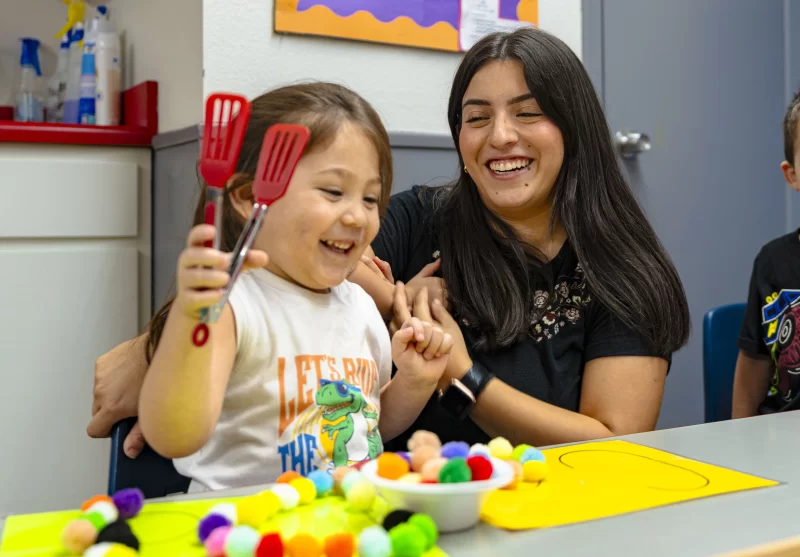
Have you ever watched a surgeon move their hands with calm precision? Those steady movements do not come from luck alone. They begin with small steps in early childhood. From stacking blocks to buttoning shirts, young children are building muscle memory and fine motor skills every day. In fact, these early experiences may pave the way for a future in fields that require controlled hands—like surgery.
Understanding Muscle Memory
Muscle memory is the way our muscles, brain, and nervous system work together to “remember” specific tasks. It develops through repetition, which helps children refine everyday actions like buttoning shirts, tying shoelaces, or peeling stickers. Over time, these repeated movements become second nature, freeing them from having to think about each step. This solid foundation of muscle memory can later support more complex tasks—like suturing a wound in an operating room—by providing the steady hand-eye coordination and control needed for precision work.
How Montessori Nurtures These Skills
Montessori education is built on the idea that children learn best through hands-on experiences. At Excelled Montessori School, children work at their own pace and choose activities that spark their interest. This approach helps them practice the same tasks many times, reinforcing muscle memory and building confidence.
Examples of Montessori Activities That Support Motor Skills
- Practical Life Exercises
- Transferring beans with a spoon
- Pouring water from a small pitcher
- Buttoning and zipping frames
- These tasks teach precision, steady hand control, and focus. They also give children a sense of independence.
- Sensorial Materials
- Sorting objects by color, size, or shape
- Tracing letters with sandpaper letters
- These hands-on materials sharpen the senses and help children refine their coordination.
- Art and Handicrafts
- Finger painting, coloring, and drawing
- Clay modeling and cutting with child-safe scissors
- Creative activities reinforce small muscle movements and hand-eye coordination, both vital for tasks requiring accuracy later in life.
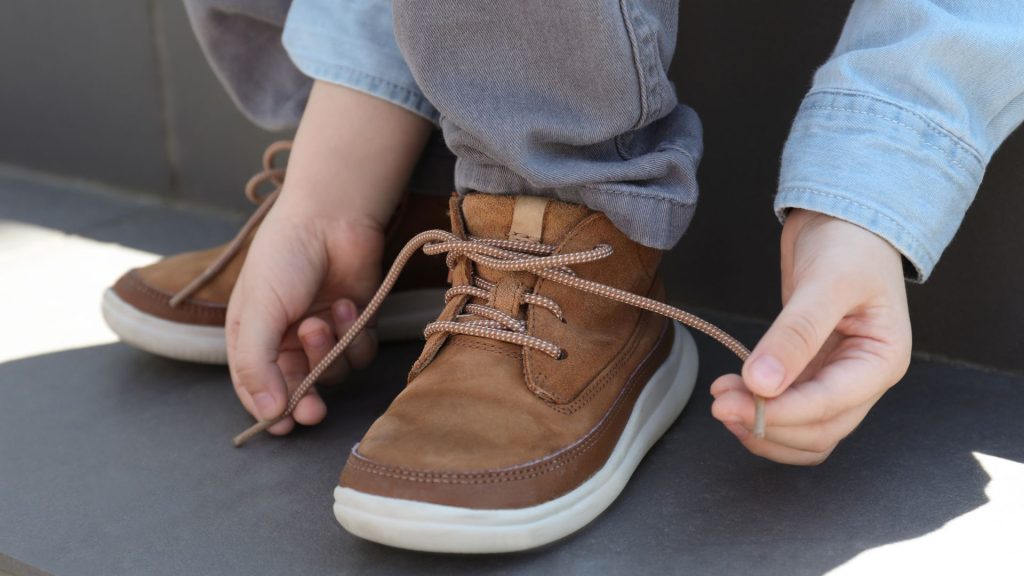
Real-Life Classroom Examples
- Sewing and Weaving
In our primary classrooms, children use child-sized needles and thread to sew simple shapes or weave colorful patterns. This requires focus, coordination, and the ability to guide a tool through the correct path. Over time, these repeated hand movements become second nature—similar to how a surgeon smoothly guides a needle and thread during suturing. - Pin Poking
Pin poking is another favorite activity at Excelled Montessori. A child holds a small pushpin and pokes holes along the outline of a shape on paper. This strengthens the fingers and teaches children how much pressure to apply. That same combination of strength and control could later help with medical or artistic precision. - Toddles Weaving
Young learners love “toddles weaving,” which involves weaving small strips of paper or cloth through a grid or simple loom. This strengthens hand muscles and boosts attention to detail. The steady, repetitive action helps children gain a deeper sense of coordination that supports future tasks requiring dexterity. - Washing Apples and Other Practical Life Activities
Practical life activities, like washing apples or pouring water into cups, help children practice wrist rotation, pressure control, and the ability to handle objects carefully. These everyday tasks build not only practical skills but also the groundwork for advanced hand-eye coordination.
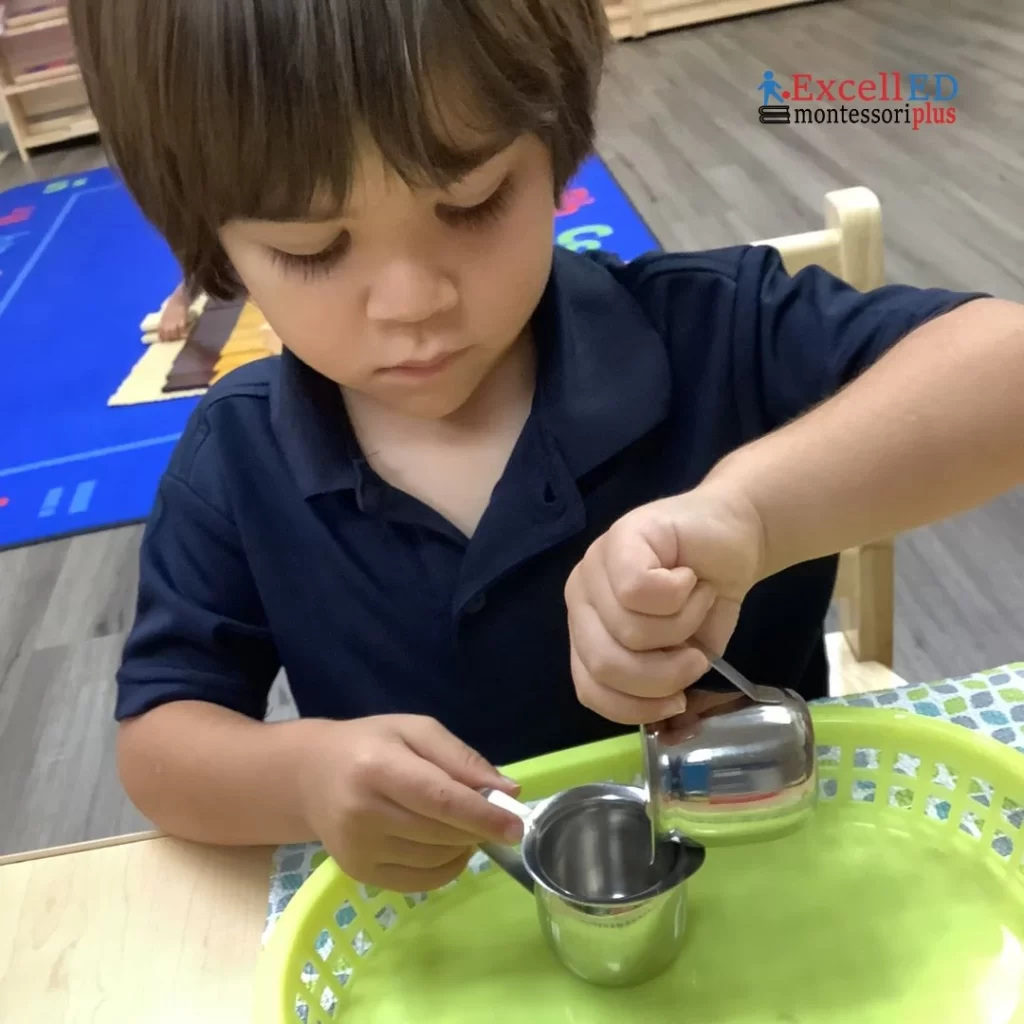
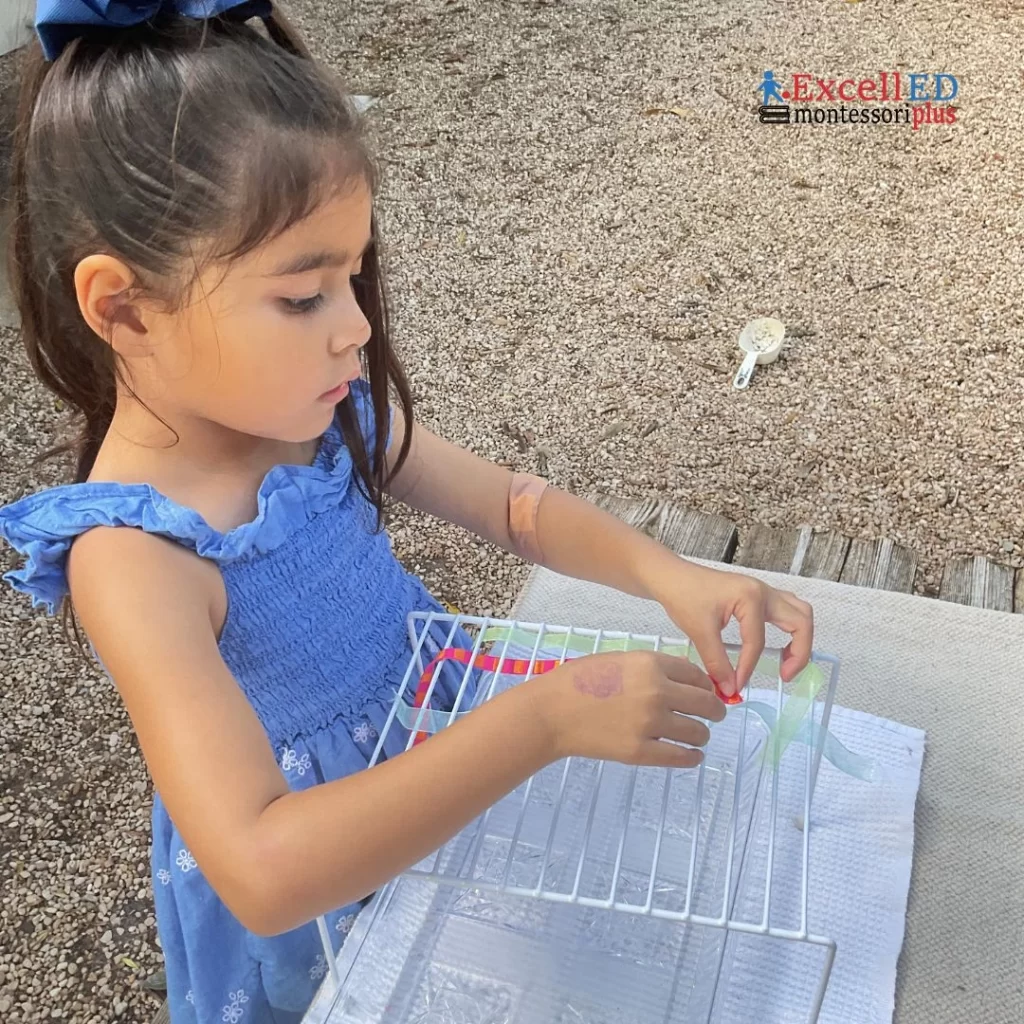
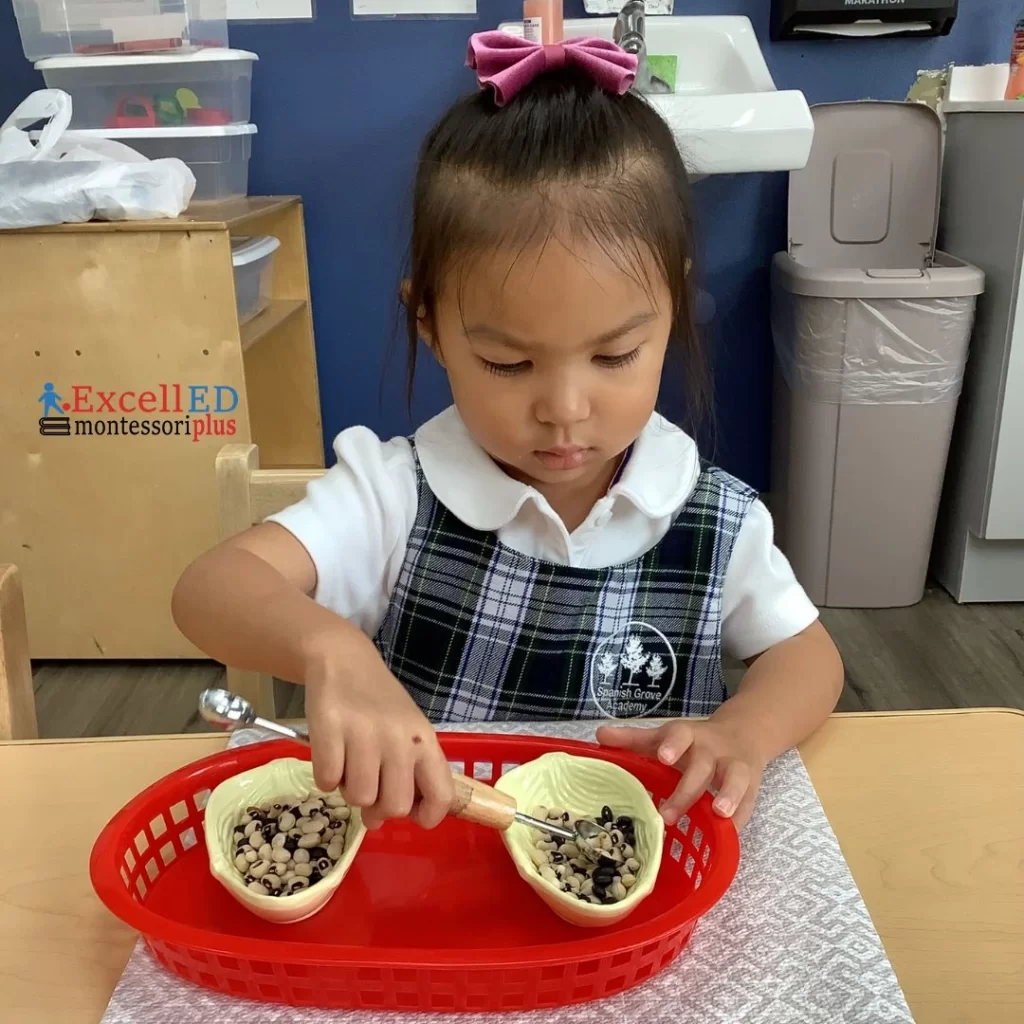
Why Repetition Matters
In our classrooms, children repeat tasks many times. Repetition allows their muscles and brains to develop strong connections. This leads to better accuracy and reduces the effort needed for each movement. Over time, the child focuses less on “how” to move and more on the fun and creativity of their task.
Simple Ways to Boost Fine Motor Skills at Home
- Encourage Repetition
Let your child practice simple tasks often. Repeated actions build strong pathways in the brain. - Provide Child-Sized Tools
Offer small utensils or safety scissors, so children learn to grip and control objects suited to their hand size. - Set Up Montessori-Inspired Stations
Create low shelves or trays with items like puzzles, beads, or crayons. Make it easy for children to pick and practice. - Cheer on Independence
Let your child attempt tasks like pouring water, buttoning jackets, and setting the table. They gain both skill and confidence. - Celebrate Mistakes and Progress
Mistakes are part of learning. Cheer your child on as they learn by doing. With time, they will gain better control and form healthy habits that lead to lifelong independence. - Create a Repetitive Routine
Invite your child to do the same activity multiple times—like sewing patterns or pin poking. Repetition builds powerful muscle memory that becomes second nature.
From Playtime to the Operating Room
Not every child will grow up to be a surgeon. Yet these same fine motor skills also help with everyday tasks and other professions—like musicians, painters, or chefs. By nurturing your child’s muscle memory during their toddler and preschool years, you set them on a path to excel in anything they do.
At Excelled Montessori School, we recognize the power of these early lessons. We offer an environment where children can learn through hands-on exploration, repetition, and independence. So the next time you watch your little one focus hard on stacking blocks, remember: they are building the steady hands and calm focus that may one day hold a surgeon’s scalpel—or at least master life’s many tasks with grace and skill.
Ready to Learn More?
If you’d like to see how these activities come to life in our classrooms, we invite you to visit us. Contact Excelled Montessori to schedule a tour and experience firsthand how hands-on learning builds the skills your child needs for today—and for tomorrow.



